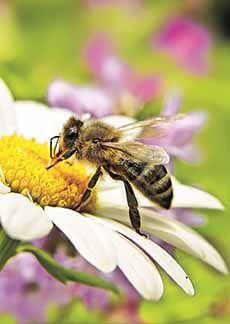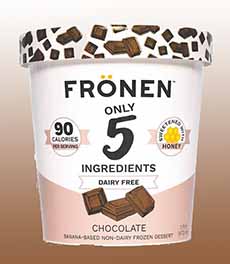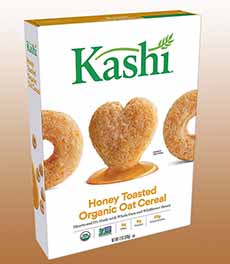|
September is National Honey Month.
But bees do much more than make honey.
Bees are essential to grow hundreds of basic crops helping with food production and sustainability.
Yes, these little pollinators travel from plant to plant collecting nectar to make honey.
In the process, the plant’s pollen adheres to their bodies, and in a vital interaction, they inadvertently transfer the pollen from flower to flower, which pollinates the plants, many of which cannot self-pollinate.
This process:
Enables pollination of more than 90 different fruits, vegetables, and nuts in the U.S.: one-third of the foods we eat. Our planet’s entire ecosystem depends on honey bees.
These include, among many others, apples, avocados, melons, broccoli and cranberries.
Some crops, such as blueberries and cherries, are 90% dependent on honey bee pollination. One crop, almonds, depends 100% on the honey bee for pollination. Here are more bee-dependent crops.
Enables pollination that creates half of the world’s oils, fibers and raw materials.
Prevents soil erosion.
Increases carbon sequestration. [source]
HELP THE BEES THROUGH PROJECT APIS M.
This year, the National Honey Board is partnering with Project Apis m., the largest honey bee non-profit in the U.S.
(Apis mellifica, abbreviated Apis m., is the binomial name of the genus and species of honey bees.)
Project Apis m. is is committed to enhancing the health and vitality of honey bee colonies through research.
You can support the Honey Saves Hives campaign by purchasing a product made with honey from Kashi, Justin’s and Frönen, or by supporting Project Apis m. directly.
SUPPORT THESE BRANDS
For the month of September, the National Honey Board is partnering with Kashi, Justin’s and Frönen to raise money for honey bee research.
Each of these brands uses honey in their products, and each will be making a donation in September to an organization focused on honey bee health.
When you buy a product with honey, you’re supporting beekeepers and their efforts to keep honey bees healthy.
So check out these brands:
Frönen Nondairy Frozen Desserts
Justin’s Nut Butters & Peanut Butter Cups
Kashi Whole Grain Cereals
ADOPT A BEEHIVE
Adopt a beehive from The Honey Bee Conservancy.
HONEY BEE FACTS
Output: On average, a honey bee hive will produce 60 pounds of excess honey a year, with each bee producing only a 1/12 of a teaspoon of honey in her lifetime!
Species: There are more than 20,000 different species of bees in the world, but only seven recognized species of honey bees. These amazing insects are distinguished by a secondary stomach called a honey sac, and in their ability to make and store honey.
Little Chemists: Honey bees are chemists, naturally converting nectar from flowers into the honey. And, they do it in the most efficient factory in the world—the beehive!
> The History Of Bees & Honey
> The Different Types Of Honey
|
|

[1] Without honey bees, food on earth would be much more limited (photo © National Honey Board).

[2] Help the bees by snacking on Frönen Nondairy Frozen Desserts.

[3] Enjoy peanut, almond and hazelnut butter from Justin’s Nut Butters & Peanut Butter Cups.

[4] Breakfast with Kashi Whole Grain Cereals.
|





